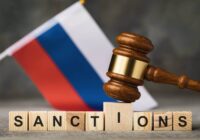Otto Petschek was one of the most successful men in the German-speaking world. In the 1920s, his family owned about half of Europe’s coal production. Petschek used his wealth in a way that was almost taken for granted by the Jewish upper middle classes at the time: He provided generous support for culture and the arts. At the height of his success, he fulfilled a dream: he designed and constructed the Otto Petschek Villa in Prague. This villa was completed in 1930 and sold in 1938 to the then Czechoslovakian state.
That same year, France, Italy and the UK sold Czechoslovakia down the river at the Munich Conference. They gave Sudetenland to Nazi Germany without the consent or involvement of the government in Prague. At that time, Sudetenland had 3.63 million inhabitants, of which 2,9 million were of German descent. Berlin claimed that ethnic Germans wanted to be a part of the Third Reich. Propaganda and money helped to stir these Sudeten Germans.
A year later, World War II broke out. After numerous killings of Jews since he seized power in 1933, Adolf Hitler unleashed the Final Solution in 1941. Six million people whom Nazi authorities considered Jewish were killed. Many members of the Petschek family perished and their entire property was confiscated by the Nazi regime.
A rather important conference
After the end of World War II, communists expropriated the former Petschek family property behind the Iron Curtain. Even the Federal Republic of Germany returned only a small part of their property. The Otto Petschek Villa is now the residence of the US ambassador to the Czech Republic. Recently, this residence was host to the welcome reception of a conference on the Terezin Declaration. This 2009 declaration took “note of the special social and medical needs of all survivors” and “the importance of restituting communal and individual immovable property that belonged to the victims of the Holocaust.”
The Holocaust: A Synopsis
In normal times, this conference would not have caught much attention. To be fair, the Terezin Declaration is not very well known to this day. Yet both the declaration and the conference assume immense importance today. Yet again an ideological hyper-nationalist autocrat justifies invasions of sovereign states with a new form of völkische Großraumpolitik (ethnic greater area politics). Russian President Vladimir Putin is committing war crimes against civilians and critical infrastructure. He is also practicing population exchange in Crimea and Donbass, which is considered by experts to be a form of ethnic cleansing. Russian troops are engaging in the destruction and theft of art and cultural artifacts.
This raises some key questions. How will we deal with Russian crimes after the war? How will Ukrainians displaced and/or left destitute by the Russian invasion secure justice? Questions like these have always been tricky but the Terezin Declaration offers a good roadmap. Led by the US and signed by 46 states, this declaration is clear and comprehensive. It supplements the 1998 Washington Conference Principles on Nazi-Confiscated Art.
Over the last 14 years, different signatory states have applied these principles unevenly. Matthias Weller of the University of Bonn has conducted a comparative study on the implementation of these principles and come to this conclusion. Even though implementation may have lagged intentions, James D. Bindenagel, the ambassador who represented the US in the 1998 conference, thinks Weller’s research is critical. For Bindenagel it is the only way to bring about fair and equitable solutions in the future.
What more needs to be done
The Washington Principles are a good starting point but more needs to be done. Victims should have a low threshold and low expense way of applying for justice and compensation. The principles do not apply to real estate or company holdings. Restitution of such assets is important too. Similarly, Holocaust (Shoah in Hebrew) survivors must be eligible for supplementary pensions. Many live in abject poverty. They suffered lifelong damage and are now very old. They need justice before they die.
Not all countries take this point of view. Poland has banned all restitution by law regardless of whether it was Nazis or communists who looted or expropriated property. The country has chosen an extreme version of let bygones be bygones policy.
Other countries differ from Poland. Latvia recently compensated Jewish communities for the property that was looted from them. Germany has restituted and compensated Holocaust victims and their families. The US State Department notes:
“From 1945 to 2018, the German government paid approximately $86.8 billion in restitution and compensation to Holocaust victims and their heirs. Germany has also identified Nazi-looted objects – including art works, books, and objects within larger collections – and has returned 16,000 objects to survivors and their heirs over the last 20 years.”
Even this amount covers only a fraction of the current values of all looted (real) estates. To be fair, German museums are generally quite generous in returning cultural property.
At the recent conference in the Czech foreign ministry, no one expected current private owners to return formerly looted or confiscated property 83 years after World War II kicked off. However, everyone expected the state to protect citizens’ property rights. They also expected the state to recover property of those robbed. If the state fails in its duty to protect or recover citizens’ property, it must be held accountable for its failure. This accountability does not always have to be financial. Education programs that remember the Holocaust are a good example of non-financial methods of accountability.
Putin’s invasion of Ukraine has brought back large-scale war to Europe. Stuart Eizenstat, a one of the finest American diplomats in recent decades, pointed out at the Prague Conference that many Shoah survivors fled to Russia to escape the Nazis. Today, many are forced to flee Russia. Eizenstat also pointed out that the Shoah could have been prevented. Hitler’s initial goal had been to expel the Jews. None of the neighboring European states and even the US were willing to accept Jewish refugees though. Consequently, Hitler’s Nazi regime decided upon the Final Solution that involved the murder of millions of Jews.
This harking back to the Nazi past is relevant. Europe seemed to have banished military aggression as a foreign policy tool to the distant past. Ukraine proves that is no longer true. Unsurprisingly, US Secretary of State Anthony Blinken and Czech Foreign Minister Jan Lipavský advocated taking in Ukrainian refugees and militarily supporting Ukraine. The politicians, academics and NGo representatives applauded this stance at the conference.
Yet, as we all know only too well, words are cheap. Words must be followed by actions as Israeli President Isaac Herzog warned. The expertise of the Prague conference can be put to good use for dealing with crimes by Putin’s Russia. Anyone who loses his property, his painting, his library or his company to Russian profiteers today must not be left alone with the fear that, like the Petschek family, he will have to wait for justice for three quarters of a century. The time for justice is now.
The views expressed in this article are the author’s own and do not necessarily reflect Fair Observer’s editorial policy.
Support Fair Observer
We rely on your support for our independence, diversity and quality.
For more than 10 years, Fair Observer has been free, fair and independent. No billionaire owns us, no advertisers control us. We are a reader-supported nonprofit. Unlike many other publications, we keep our content free for readers regardless of where they live or whether they can afford to pay. We have no paywalls and no ads.
In the post-truth era of fake news, echo chambers and filter bubbles, we publish a plurality of perspectives from around the world. Anyone can publish with us, but everyone goes through a rigorous editorial process. So, you get fact-checked, well-reasoned content instead of noise.
We publish 2,500+ voices from 90+ countries. We also conduct education and training programs
on subjects ranging from digital media and journalism to writing and critical thinking. This
doesn’t come cheap. Servers, editors, trainers and web developers cost
money.
Please consider supporting us on a regular basis as a recurring donor or a
sustaining member.
Will you support FO’s journalism?
We rely on your support for our independence, diversity and quality.







Comment